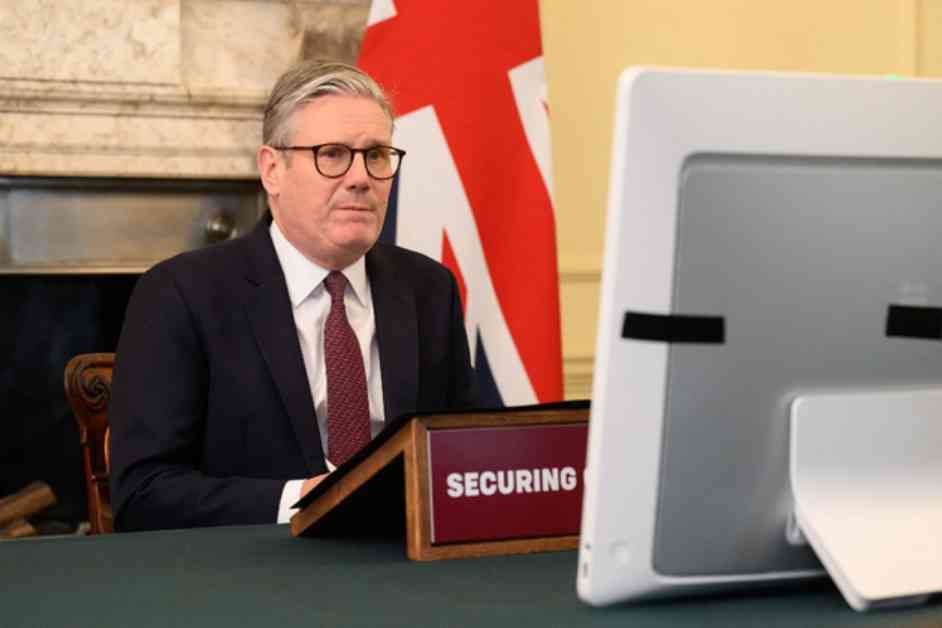A Multinational Effort to Secure Peace in Ukraine
Leaders from 26 countries have come together to discuss the next steps in establishing a multinational force to ensure a ceasefire in Ukraine. UK Prime Minister Keir Starmer, after hosting a video call with the leaders, shared that the goal is to bring an end to the conflict and let the guns fall silent. During a press briefing from Downing Street, Starmer emphasized the urgent need for peace in the region.
Ukraine’s President Volodymyr Zelensky has demonstrated a commitment to peace by agreeing to a 30-day unconditional ceasefire. Starmer commended Zelensky’s efforts, stating that Ukraine has consistently shown itself to be the party advocating for peace in the ongoing conflict. Despite this positive step, Russian President Vladimir Putin has expressed reservations about an immediate ceasefire, insisting on a thorough examination before any such agreement is reached.
United Front Against Russian Aggression
During the virtual meeting, leaders discussed the importance of coming together to address the crisis in Ukraine. They agreed to convene in person in London on March 20 to further strategize on ways to establish a secure ceasefire. Starmer highlighted the increased resolve among participating nations and the new commitments made during the meeting. The focus will be on implementing strong security measures through a coalition of willing nations.
Starmer criticized Moscow for its reluctance to engage in meaningful negotiations regarding the ceasefire. He condemned Russia’s ongoing attacks on Ukraine, emphasizing that Putin’s actions contradict his professed desire for peace. The Prime Minister stressed the importance of a proactive approach to resolving the conflict, asserting that mere delays and excuses from the Kremlin are unacceptable.
Economic Pressure and Military Support
In response to Russia’s unwillingness to commit to a ceasefire, the coalition is prepared to escalate economic sanctions. Starmer affirmed that the group is willing to consider seizing more than €200 billion in frozen Russian assets to hold the country accountable for its actions. While acknowledging the complexity of such measures, he insisted that every lawful avenue would be explored to ensure Russia pays for the damage inflicted on Ukraine.
Several countries, including Britain and France, have pledged military support to Ukraine to help uphold a potential peace agreement, contingent upon the initial 30-day ceasefire holding. However, some nations, like Germany and Poland, have been cautious about deploying troops. Starmer clarified that initial ceasefire monitoring efforts would primarily rely on satellite surveillance rather than immediate troop deployment.
As tensions escalate, European governments are increasing their military investments to bolster their defense capabilities. In Germany, incoming Chancellor Friedrich Merz has proposed injecting billions of dollars into the defense budget, awaiting approval from the German parliament.
In conclusion, the international community is united in its efforts to bring an end to the conflict in Ukraine. By working together and maintaining a firm stance against Russian aggression, leaders aim to establish a lasting peace in the region. The path ahead may be challenging, but the commitment to securing peace remains unwavering.

















